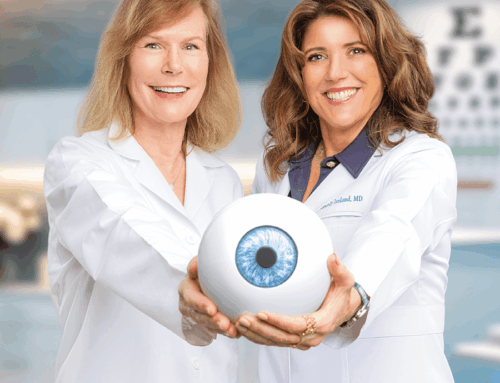
By Akers Editorial
Ask The Expert: Age-related Macular Degeneration

Luis G. León-Alvarado, M.D.
Board-Certified, Fellowship Trained Vitreoretinal Specialist at Florida Retina Institute
What is age-related macular degeneration?
Macular degeneration, also known as age-related macular degeneration (AMD), is a condition primarily affecting individuals over the age of 50. It involves damage to specific areas of the retina, leading to the loss of central vision. It is a prevalent condition, with studies showing its presence in about one in ten individuals over 50, increasing to approximately 30 percent by the age of 70.
What are some of the symptoms of AMD to look out for?
Symptoms of macular degeneration can vary, but common signs include distorted vision, such as seeing wavy lines or experiencing central visual activity loss. In more severe cases, individuals may struggle to recognize faces or experience significant central visual impairment, impacting daily activities like reading.

What steps should you take if you notice AMD symptoms?
Upon noticing symptoms, it is crucial to seek evaluation from an eye doctor promptly. Depending on the diagnosis, treatment approaches may vary. Dry macular degeneration, characterized by slow progression, often requires regular monitoring, and may be managed with specialized vitamin formulations. For wet macular degeneration, which involves abnormal blood vessel growth, treatments like intraocular injections are employed to prevent further vision loss.
Injections into the eye may sound daunting, but they are simple procedures usually performed in-office without the need for sedation. The goal is to dry out abnormal blood vessels, thereby halting the leakage of fluid into the retina. While treatments can require regular follow-ups, advancements continue to improve outcomes, offering hope for managing and potentially curing this condition in the future.
Should you be tested for AMD even if you don’t have symptoms?
Yes, it is recommended to undergo testing for age-related macular degeneration (AMD) even if you do not exhibit symptoms. Early detection plays a crucial role in managing AMD effectively. Regular eye examinations, particularly for individuals over the age of 50, can aid in identifying signs of AMD before symptoms manifest. This proactive approach allows for timely intervention and the implementation of preventive measures, potentially mitigating the progression of the condition. Therefore, routine screening for AMD is advisable, especially considering its prevalence among older adults and the importance of preserving vision health.









































